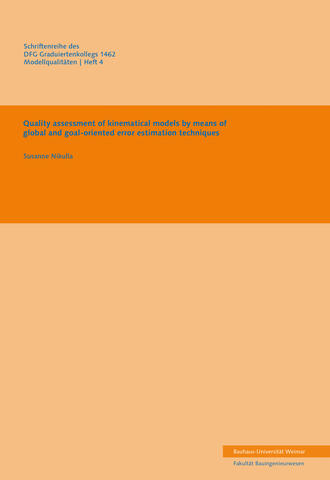Quality assessment of kinematical models by means of global and goaloriented error estimation techniques
Anwendung globaler und zielorientierter Fehlerschätzer zur Beurteilung der Notwendigkeit einer geometrisch nicht-linearen Berechnung
Methods for model quality assessment are aiming to find the most appropriate model with respect to accuracy and computational effort for a structural system under investigation. Model error estimation techniques can be applied for this purpose when kinematical models are investigated. They are counted among the class of white box models, which means that the model hierarchy and therewith the best model is known.
This thesis gives an overview of discretisation error estimators. Deduced from these, methods for model error estimation are presented. Their general goal is to make a prediction of the inaccuracies that are introduced using the simpler model without knowing the solution of a more complex model. This information can be used to steer an adaptive process. Techniques for linear and non-linear problems as well as global and goal-oriented errors are introduced. The estimation of the error in local quantities is realised by solving a dual problem, which serves as a weight for the primal error. So far, such techniques have mainly been applied in material modelling and for dimensional adaptivity. Within the scope of this thesis, available model error estimators are adapted for an application to kinematical models. Their applicability is tested regarding the question of whether a geometrical non-linear calculation is necessary or not.
The analysis is limited to non-linear estimators due to the structure of the underlying differential equations. These methods often involve simplification, e.g linearisations. It is investigated to which extent such assumptions lead to meaningful results, when applied to kinematical models.
